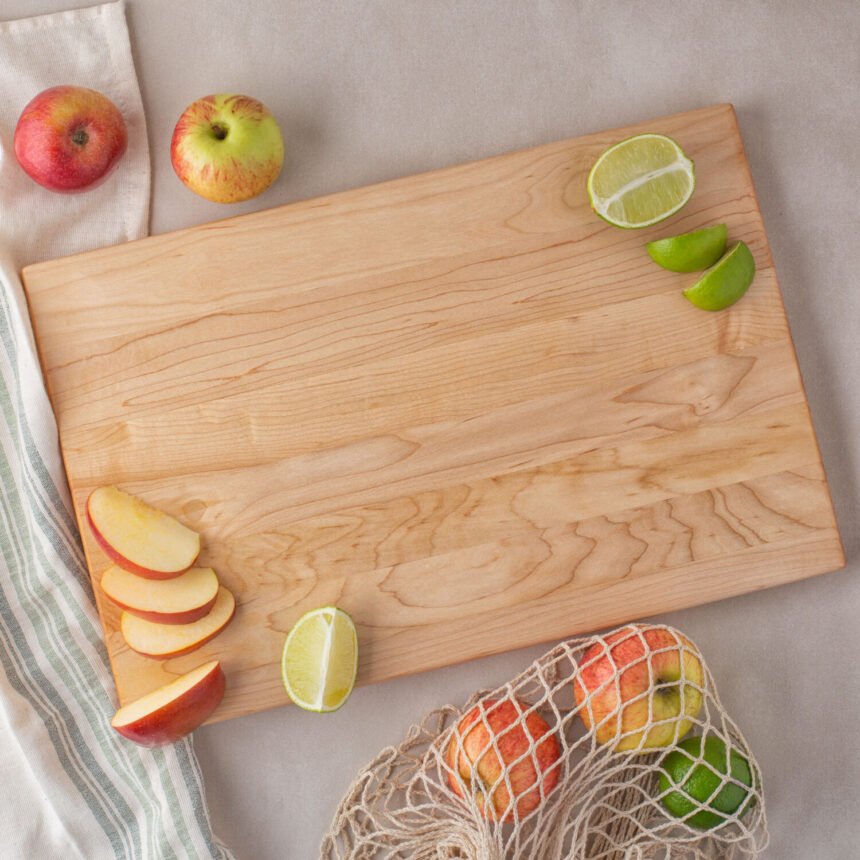When it comes to kitchen essentials, a durable cutting board is one of the most important tools every home cook and professional chef relies on. Amid the variety of materials availablewood, bamboo, plastic, and compositeEpicurean cutting boards have gained significant popularity for their sleek look and unmatched functionality. But, a common question that arises is: Are Epicurean cutting boards toxic?
In this article, well break down what Epicurean cutting boards are made of, address safety concerns, compare them with other cutting board materials, and explain why they have become a favorite in both home and restaurant kitchens.
What Are Epicurean Cutting Boards?
Epicurean cutting boards are high-quality boards made primarily from a material called Richlite, which is a wood-based composite. This material was originally designed for use in industrial and even aerospace applications due to its strength, durability, and resistance to moisture.
Over time, it was adapted for kitchen use, giving birth to Epicureans line of cutting boards. Unlike traditional wood or plastic boards, these composite boards bring together the best of both worldsnatural material aesthetics combined with modern, eco-friendly technology.
Key characteristics include:
-
Heat resistance up to 350°F (176°C)
-
Non-porous, making them resistant to bacteria
-
Knife-friendly surface that wont dull blades quickly
-
Dishwasher safe, unlike most wooden cutting boards
Are Epicurean Cutting Boards Safe?
The straightforward answer is yes, Epicurean cutting boards are safe to use. The Richlite material they are made of is NSF (National Sanitation Foundation) certified, which means it meets safety and hygiene standards required for food preparation.
This certification is significant because it assures users that:
-
The surface will not leach harmful chemicals into food.
-
The board resists bacteria growth better than porous wood boards.
-
It can withstand frequent dishwasher cleaning without breaking down or releasing toxins.
So, if you are wondering are Epicurean cutting boards safe?, the answer is a resounding yes. They are built specifically with safety in mind, trusted by professionals, and tested for compliance with food safety standards.
Are Epicurean Cutting Boards Toxic?
Now, to address the bigger concern: Are Epicurean cutting boards toxic? No, they are not toxic.
Heres why:
-
The Richlite composite used in Epicurean products is made from layers of FSC-certified paper or wood fiber that are bonded with a food-safe resin.
-
The resin used is phenolic resin, which has been proven safe for kitchen use as it is fully cured in the manufacturing process. Once cured, it becomes stable and does not release toxins into food.
-
Their non-porous surface prevents absorption of harmful bacteria, unlike cheaper plastic boards that often crack and harbor pathogens.
To support this, the NSF International (a trusted high-authority food safety body) has certified these cutting boards safe for food use. NSF International is one of the most credible organizations when it comes to food-contact product safety standards.
This makes Epicurean cutting boards an excellent choice for anyone worried about toxicity or food safety.
Comparing Epicurean Cutting Boards to Other Boards
Different materials have their strengths and weaknesses. To further analyze safety and practicality, heres how Epicurean cutting boards stack up against the competition:
-
Plastic cutting boards: Inexpensive and lightweight, but they develop deep grooves from knife blades, which trap bacteria and can be difficult to properly sanitize.
-
Wood cutting boards: Naturally antibacterial, visually appealing, and gentle on knives, but require more maintenance (oiling, handwashing) and are not dishwasher safe.
-
Bamboo cutting boards: Eco-friendly and attractive but often harder on knives, leading to premature dulling of blades.
-
Epicurean cutting boards: Heat resistant, dishwasher safe, non-toxic, and designed to be long-lasting without knife damage or bacterial buildup.
This balance of durability, functionality, and safety is what makes Epicurean stand out.
Epicurean Cutting Board Set Benefits
For those serious about cooking, purchasing an Epicurean cutting board set instead of a single board often proves more practical. Different sizes allow you to separate tasks such as chopping meat, slicing bread, or dicing vegetablesminimizing cross-contamination risks.
Benefits of investing in a set include:
-
Convenience of having boards sized for different cooking tasks
-
Versatility for handling raw proteins versus fresh produce
-
Uniform durability across all boards
-
Easy storage since many sets are slim and stackable
An Epicurean cutting board set not only enhances your kitchen workflow but also ensures better food safety practices.
Durability and Maintenance
One of the biggest advantages of Epicurean cutting boards is their low-maintenance nature. Since they are dishwasher safe, maintaining hygiene is hassle-free. Unlike wooden boards that require regular seasoning with mineral oil to prevent cracking, Epicurean boards stay consistent without extra care.
Maintenance tips include:
-
Always wash after raw meat preparation to avoid contamination, even though the surface is non-porous.
-
Avoid prolonged soaking, though brief dishwasher cycles are perfectly fine.
-
Dry thoroughly before storage to maintain structural integrity over the long term.
With proper use, these boards can last for many years without warping, cracking, or losing their finish.
Environmental Impact
Beyond safety and convenience, many consumers today care about environmental impact. Epicurean takes sustainability seriously by sourcing FSC-certified (Forest Stewardship Council) wood fibers for their cutting boards. This ensures raw materials come from responsibly managed forests, making them an eco-conscious choice.
Additionally, their long lifespan reduces frequent replacements, minimizing landfill waste compared to plastic boards that often end up discarded due to quick wear and tear.
Addressing Popular Myths about Epicurean Cutting Boards
-
Myth: They dull knives quickly
In reality, Epicurean cutting boards are designed to be knife-friendly. Though they are hard enough to resist scratches, they are softer than common countertop materials, preventing blade damage. -
Myth: The resin used is toxic
The phenolic resin in Epicurean cutting boards is fully cured, meaning it remains inert and safe for food contact. It is not the same as raw, industrial-grade resins. -
Myth: Composite boards cant handle heat
These boards are heat-resistant up to 350°F, so you can rest hot pots or pans temporarily without damaging them.
Debunking these myths shows that the concerns many people have are based on misconceptions.
Why Choose Epicurean Cutting Boards?
To summarize, Epicurean cutting boards offer several compelling reasons to choose them over competing products:
-
Non-toxic and food-safe materials
-
NSF certification for peace of mind
-
Dishwasher safe and easy to clean
-
Environmentally sustainable production
-
Durable enough for professional kitchens yet convenient for home cooks
-
Wide range of sizes available in Epicurean cutting board sets
For anyone asking are Epicurean cutting boards toxic?, the evidence is clearthey are not only safe but also one of the most reliable options available.
Conclusion
Kitchen safety goes beyond cooking techniquesit extends to the tools you use daily. Epicurean cutting boards check all the boxes: they are a non-toxic, eco-friendly, and long-lasting option trusted by both restaurants and households.
If youre unsure about upgrading your old cutting board, an Epicurean cutting board set offers both peace of mind and practicality. Considering their safety certifications and sustainable design, its no surprise they continue to dominate lists of the best cutting boards on the market.









